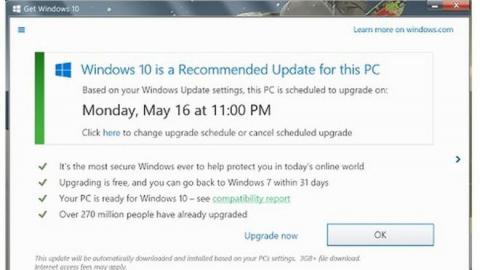
Just read an interesting article from the BBC about what they call a "Nasty Trick" into fooling Windows 7 and Windows 8 users into upgrading to Windows 10 without their consent.
Read the article here --> http://www.bbc.com/news/technology-36367221
In recent months I have heard from Facebook friends and customers alike that they were tricked into upgrading to Windows 10. Many complain that their machines, even though supposedly powerful enough for Windows 10, in fact, aren't so at all. Once their systems had upgraded to Windows 10, the performance isn't up to snuff. On top of that, many mature users find the new Windows 10 interface confusing and have a hard time navigating the product. Some are upset that the upgrade has left many of their software programs unusable as they are not compatible with Windows 10.
All of my business and home PC's and laptops are now on Windows 10. Being an I.T. consultant I performed the upgrade when I was ready and made sure that the upgrade would work as expected. Home users may or may not have the skill set to perform a manual upgrade on their terms and may, as the aforementioned article states, be tricked into an automatic upgrade against their wishes.
Good news is, and of course Microsoft does not advertise this enough, you can roll back your upgrade to your previous version of Windows.
Instead of reinventing the wheel, here is a link on how to do just that --> http://www.pcworld.com/article/3074020/windows/how-to-go-back-to-windows...
As always, feel free to enjoy your Microsoft and other vendor software products and continue to complain about them! Nothing is perfect, but nothing sucks like having a working system and finding out the next morning that an unwanted upgrade has ruined your routine.
Cheers!
Kai Guettner, The Geeksultant, is an independent I.T. consultant for hire. These are his personal expressed opinions and do not reflect any other parties opinions nor their perceived facts.
- The Geeksultant's blog
- Log in to post comments
- 3173 reads



